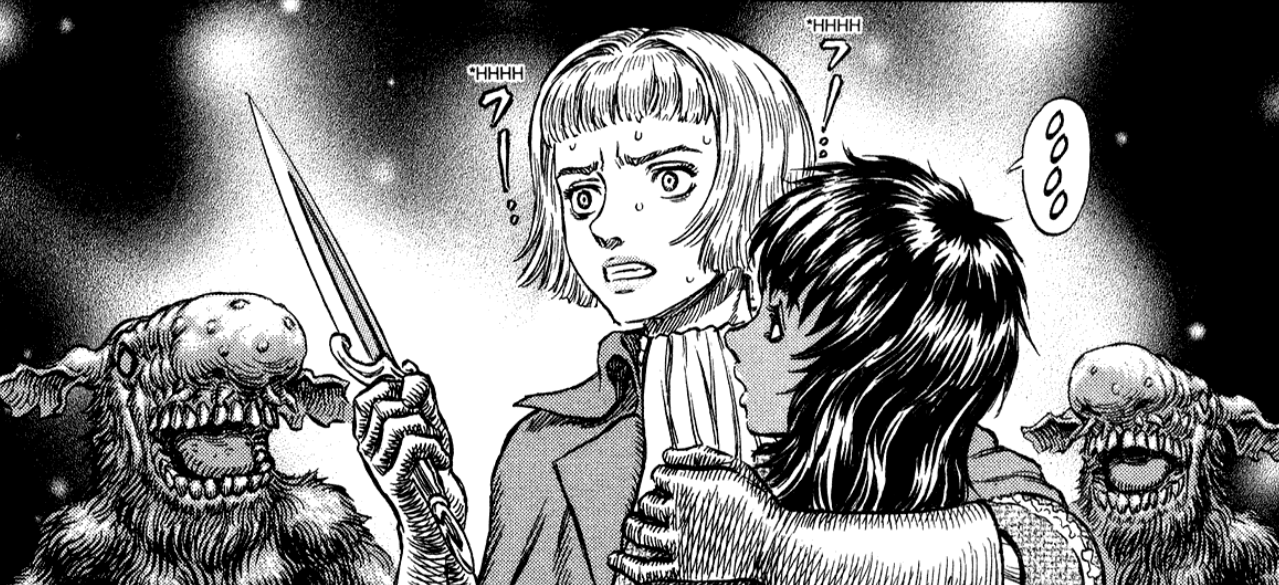What the hell happened? I mean, a witch hunter becoming a witch? How the hell does that even work out!? If I were to write down a list of tropes to use for a story, it sounds so cliche and as a writer, risky, too. But Miura’s execution of this is excellent.
Farnese in general has a lot in common with Guts: Farnese, much like Guts, was like a lost child in the beginning, deprived of parental attention and affection, living in a large aristocratic mansion. Towards Serpico, she was very cruel and abusive. She develops a fascination with fire, would hunt down people weaker than her and burn them at the stake – which is even worse than Guts during the Black Swordsman and Lost Children Arcs, who (despite of his heartless exterior) was generally trying to avoid casualties e.g. by warning those around him. She also has a damaged sense to her own sexuality by satisfying herself to the sight of fire (for Guts, you can blame Donovan for that).
Farnese’s character was shook and burnt down a couple of times before she eventually ended up joining Guts on his travels. That bears some similarity on how Guts’ character was burned down during the Golden Age (starting with the fountain speech and the killing of Adonis and Julius) that eventually led him to leaving the Hawks (more of this in this article). Just to point out how excellent of a writer Miura is.
Farnese mostly invoked the change on her own, but through Guts’ subtle guidance and support she found purpose and meaning. She is also a perfect example how a damaged person who has done terrible things can redeem themselves.


Pretty great analysis about her! Berserk has such complex characters and I think Miura handled her well.
LikeLike